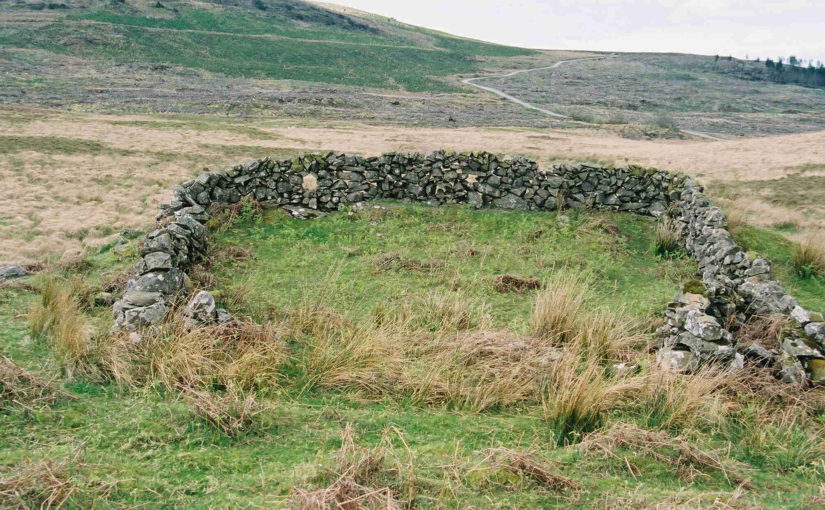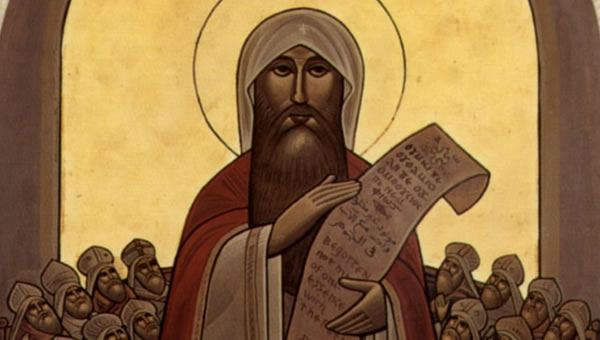Today’s readings
Some days, I think there isn’t much I would do for just five minutes of peace and quiet.
If you’re a parent, maybe you’d amend that to longing for just five seconds of peace and quiet! We are all probably sadly familiar with the many loud distractions our world puts before us. And we’ve become conditioned to accepting it, even needing it on some primitive level, I think. How often do we get out of bed and flip on the radio or television right away, or check our text messages or email before our feet even hit the floor? Can we even get through a car ride without having the radio going? Is the television always the background noise in our homes? I know I’m guilty of those myself. There’s a whole lot of noise out there and it’s become so that we are very uncomfortable with any kind of quiet.
And the noise doesn’t lead us anywhere good. The Psalmist talks about walking through death’s dark valley. I think some of the noise out there resembles that dark valley pretty closely. There are voices out there tempting us to all sorts of evil places: addictions, selfishness; pursuit of wealth, prestige, or power. Those same voices call us to turn away from the needy, from family, God and the Church. Those same voices tell us that we are doing just fine on our own, that we don’t need anyone else to make us whole, that we are good enough to accomplish anything worthwhile all by ourselves. And those voices are wrong, dead wrong.
Those are the voices of those Jesus mentions in the Gospel who circumvent the gate and come to “steal and slaughter and destroy.” The frightening thing is, we have become so used to these distracting voices that we have turned away from God, turned away from the Savior we so desperately need, and have been led astray. That’s the heart of why our pews aren’t filled, why people call themselves “spiritual but not religious”, why the likes of Oprah and Doctor Phil and Joel Osteen have become so popular in this day and age.
So maybe we have to become a little more like sheep. Now I want to be careful about saying that, because being like sheep has a pretty negative connotation. To be clear: I don’t mean that in the sense of cultivating blind obedience. Because, as it turns out, sheep aren’t as dumb as we often think of them. Here’s the backstory on today’s Gospel image of the sheep, the shepherd, and the sheepfold: In Jesus’ day, the shepherds would gather several flocks in the same fenced-enclosure. The sheepfold might be constructed in a pasture using brush and sticks; or, it would adjoin a wall of a house and have makeshift walls for the other sides. Owners of small flocks of sheep would have combined them in the secure enclosure at night. Someone – the gatekeeper – would then guard the flocks. The “gate” would have been a simple entrance, but the gatekeeper might even stretch out across the opening and literally be the “gate.” The shepherds would arrive early in the morning and be admitted by the gatekeeper. They would call out to their sheep and the members of the flock recognize the voice of their own shepherd, and that shepherd would “lead them out.” The shepherd then walks in front of the flock and they follow. (cf. Jude Sicilliano, OP)
We, like the sheep, have to cultivate the silence and the ability to hear our shepherd’s voice and follow him, being led to green pastures, and not be distracted by all the noise out there. We are a people in great need of a Savior, of the Good Shepherd. When we deny that, we’ve already lost any hope of the glory of heaven. We desperately need the guidance of the one who is the Way, the Truth and the Life; the one who leads us to eternity, laying down his own life to keep us out of the eternal clutches of sin and death. Jesus came into this world and gave himself so that we might “have life and have it more abundantly.” We just have to stop settling for the noise out there and tune in to our Savior’s voice.
Here’s a way to pray with this in the coming week. Take five minutes, or even just five seconds if that’s all you can find, and consciously turn off the noise: whether it’s the physical noise of the television or radio, or the internal noise of distractions in your head. And then reflect on what voices are out there distracting you from hearing the voice of your Good Shepherd. Ask the Good Shepherd to help you tune them out so that you can more readily discern his voice and follow the right path.




You must be logged in to post a comment.